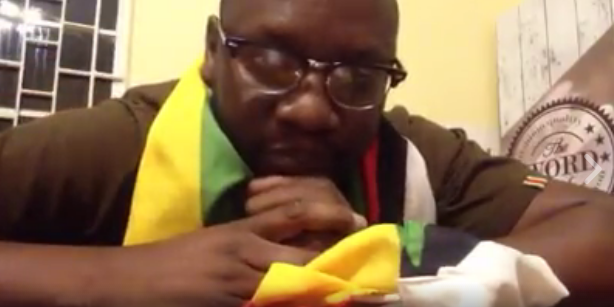Zimbabwe's nationwide “shutdown” last week — a boycott of work, shopping and public institutions — was one of the biggest and most successful in recent years. It left streets, shops, banks and malls deserted in the capital city of Harare.
Protesters are demanding government accountability in the face of unpaid wages, corruption and lack of jobs as Zimbabwe's economy sits on the brink of collapse. The country has been in a currency crisis since 2009 and unemployment is estimated at 80 or 90 percent. Recent cash shortages have forced citizens to queue for days to withdraw money from the banks. Civil servants in Zimbabwe have not been paid since June this year, but members of the security forces are always paid on time with the government living in fear of violent political overthrow.
Many are also calling for the resignation of 92-year-old Zimbabwean President Robert Mugabe, who has been in power since 1980, when the country gained full independence from the UK.
This isn't the first time Zimbabwe has staged a “shutdown” over government dysfunction, but it is the first time that political parties and civic organisations have mobilized protesters using social media.
On Twitter, Facebook and the social messaging platform WhatsApp, activists used various hashtags such as #ShutDownZim, #ZimbabweShutdown, #ThisFlag, #ShutDownZimbabwe2016 and #ZimShutDown to organise the shutdown.

Screenshot from a YouTube video of Zimbabwean pastor Evan Mawarire, who started one of the key organising hashtags for protests against president Robert Mugabe, #ThisFlag.
The hashtag #ThisFlag became a particularly powerful tool in the fight against the Mugabe regime and his ruling ZANU-PF party after it was launched on April 19, a day after Zimbabwe's Independence Day, by patriotic anti-corruption pastor Evan Mawarire, pictured above.
Since April 2016, social media platforms increasingly have become the most potent tools for Internet-based, non-partisan political activism in the country. This in turn has triggered fears that the government will move to ban social media platforms in the near future. Last Wednesday's shutdown suggests that citizens are right to be concerned.
On the morning of the July 6 shutdown, WhatsApp was not accessible. This is not trivial — local sources report that WhatsApp accounts for 34% of Internet data in Zimbabwe. The government denies blocking it, but scores of users think otherwise.
The Postal and Telecommunications Regulatory Authority of Zimbabwe (POTRAZ) last week also issued a warning that underlined punishments for “subversive or offensive telecommunication messages”:
We are therefore warning members of the public that from the date of this notice, any person caught in possession of, generating, sharing or passing on abusive, threatening, subversive or offensive telecommunication messages, including WhatsApp or any other social media messages that may be deemed to cause despondency, incite violence, threaten citizens and cause unrest, will be arrested and dealt with accordingly in the national interest.
The warning came after Mugabe's announcement in April, wherein media quoted him saying Zimbabwe could learn from China as it seeks to stop the “abuse” of the Internet.
Despite the unavailability of WhatsApp over public networks, some netizens were still able to share information using virtual private networks (VPNs).
At the level of Internet infrastructure, it is rumored that the government is working on licensing an Internet gateway for the country, which would be operated by the government and would absorb the multiple Internet gateways operating in the country at the moment. A draft copy of the new National ICT Policy articulates a government goal of establishing a single infrastructure that all Internet service providers use and a national fibre backbone that would allow government authorities broad access to network traffic, and presumably to user communications data.
If the burgeoning protest movement is to continue, more citizens will need to become tech-savvy as the government looks to tighten legislation and technical mechanisms regulating online activity.








